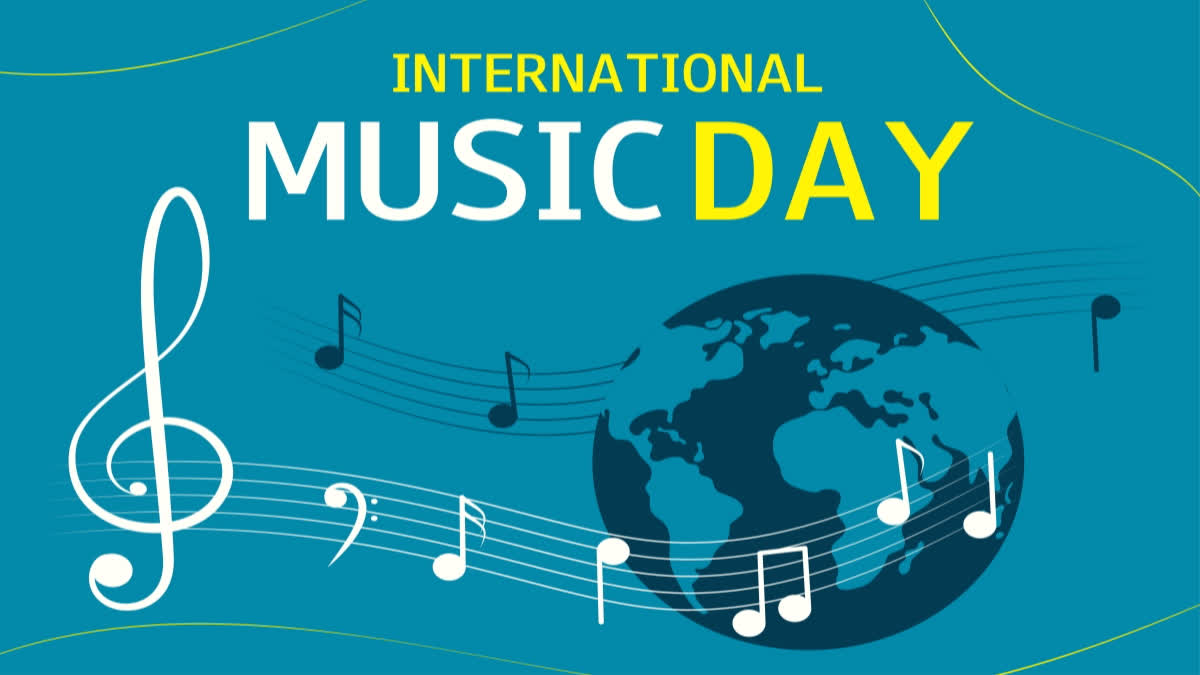What is MUSIC? The Old English term "musike" from the middle of the 13th century and the French word "musique," which dates back to the Latin word "mūsica," are two of the words that preceded the modern word "music." The Greek term "mousiké," which literally translates to "art of the muses," is from where the Latin word originates.
In essence, music is an organized collection of sounds created by humans, often aimed at expressing emotions or striving for aesthetic appeal. Music, this collection of human-made sounds, is typically organised following established techniques and cultural norms centered on rhythm, melody, and harmony.
One of the essential characteristics of the human species is music. From the most basic to the most elegant, almost every culture produces music. It holds true for all of human history and for the duration of a person's life. In tune or not, we humans sing and hum; in time or not, we clap and sway; in step or not, we dance and bounce.
The three main components of music that humans perceive are rhythm, melody, and harmony.
History: World Music Day was first established in France in 1982, and it has a long history there. Maurice Fleuret, a composer, radio producer, and then-French Minister of Culture Jack Lang came up with the concept of World Music Day in an effort to create a day honoring all music enthusiasts. On June 21, the summer solstice, artists and vocalists assemble in public areas to celebrate the healing potential of music.
The goal of the world is to foster a sense of community and promote musical diversity. On June 21, 1982, France marked the first World Music Day. Since then, thousands of musicians have started playing in the parks and on the streets as a result of their huge success.
Benefits of Listening to Music:
- It can lead to better learning.
- It can enhance memory.
- Music can help treat mental illness
- Music has the potential to reduce anxiety.
- It relieves depressive symptoms.
- Music can improve the health of your heart.
- It improves exhaustion.
- It improves athletic ability.
- Music helps with relieving pain.
- Music helps improve your Mood.
Music Therapy: Music therapy leverages the therapeutic potential of music within a therapeutic connection to address various health issues and enhance your overall well-being. The approach being taken determines how it functions. The majority of music therapy sessions are conducted one-on-one with a professional in the field.
Types of sound or music therapy:
- Guided meditation
- Neurologic music therapy
- Bonny Method
- Nordoff-Robbins
- Tuning fork therapy
- Brainwave entrainment
Healing instruments:
- Singing bowls
- Tuning forks
- Pan flute
- Harp
- Drums
Certain techniques employ many instruments in a single session, such as a piano, guitar, or other instrument.
Benefits of Listening to Music
- It can lead to better learning.
- It can enhance memory.
- Music can help treat mental illness
- Music has the potential to reduce anxiety.
- It relieves depressive symptoms.
- Music can improve the health of your heart.
- It improves exhaustion.
- It improves athletic ability.
- Music helps with relieving pain.
- Music helps improve your Mood.
Music Therapy:
Music therapy leverages the therapeutic potential of music within a therapeutic connection to address various health issues and enhance your overall well-being. The approach being taken determines how it functions. The majority of music therapy sessions are conducted one-on-one with a professional in the field.
Types of sound or music therapy:
- Guided meditation
- Neurologic music therapy
- Bonny Method
- Nordoff-Robbins
- Tuning fork therapy
- Brainwave entrainment
Healing instruments:
- Singing bowls
- Tuning forks
- Pan flute
- Harp
- Drums
Certain techniques employ many instruments in a single session, such as a piano, guitar, or other instrument.
Top Ten Famous Musicians In India Of All Time
- Lata Mangeshkar
- RD Burman
- AR Rahman
- Ustad Zakir Hussain
- Ustad Bismillah Khan
- Pandit Ravi Shankar
- Ustad Zakir Hussain
- Pandit Shiv Kumar Sharma
- Hari Prasad Chaurasia
- TH VinayakramLata Mangeshkar
- RD Burman
- AR Rahman
- Ustad Zakir Hussain
- Ustad Bismillah Khan
- Pandit Ravi Shankar
- Ustad Zakir Hussain
- Pandit Shiv Kumar Sharma
- Hari Prasad Chaurasia
- TH Vinayakram



